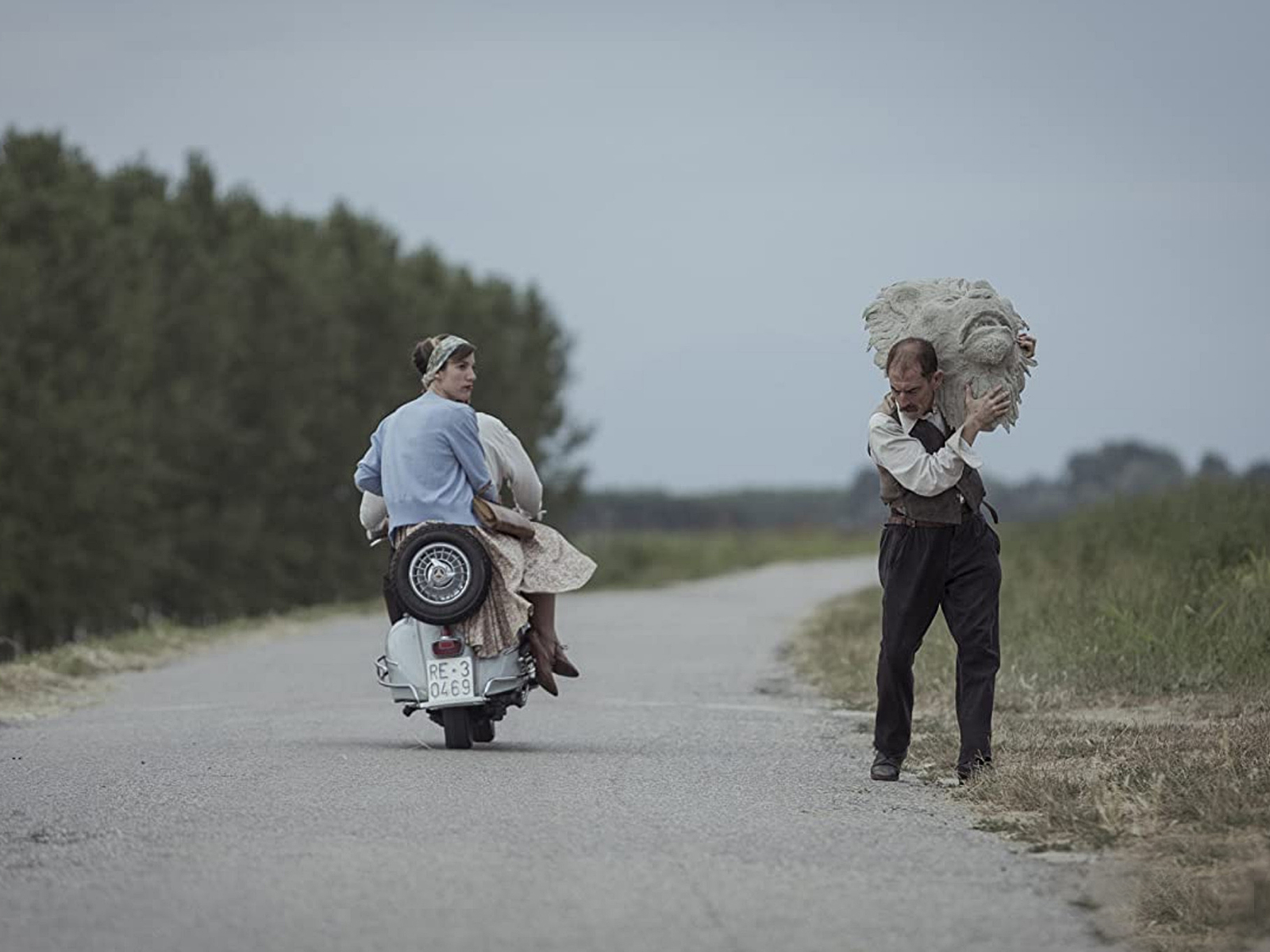
- Golden Globe Awards
Hidden Away (Italy): Interview with Director Giorgio Diritti
Giorgio Diritti’s Hidden Away (Volevo nascondermi) is about Italian visionary artist Antonio Ligabue, one of the most important “naif” artists of the 20th century. Born in 1899 (he died in 1965), Ligabue started painting and sculpting in the early 1920s, while supported by the City Hospice for Beggars in Reggio Emilia and the region of the Po river delta, on the banks of which he often lived. His physical and mental ailments haunted him all his life. He was eventually discovered and sponsored by gallery owner Renato Mazzacurati. In Hidden Away Ligabue is played by Italian actor Elio Germano. Mazzacurati by Pietro Taldi.
Director Giorgio Diritti takes a passionate approach to Ligabue’s oeuvre; he shows us the artist’s dark side and his horrific visions, but also his need to be understood and acknowledged. Marginalized and often mocked, Ligabue knows that art is the only way for him to develop his identity.
The film started its journey at the Berlin Film Festival in January 2020, where Elio Germano received the award as Best Lead Actor. It was supposed to come out in theaters in Italy a few days later, in February, but after just two days of showings, the pandemic hit, and all theaters were immediately closed. The film finally came out in theaters in Italy last August, where it was very well received by audiences and critics, winning the Nastri d’Argento (the Italian Oscar) as Best Film and garnering invitations to festivals all over the world.
We spoke about the film with director Diritti, 61, by phone from Italy. Diritti is known domestically for films such as Un giorno devi andare (2015), and L’uomo che verra’ (2009). “We are all living a very odd adventure these days, just as Ligabue’s life,” Diritti says, referring to Covid. “His life was a non-stop adventure with difficult challenges which nevertheless gave him the strength to reinvent himself, constantly. That’s why I think this story speaks today to all of us.
How did your keen interest in Ligabue begin?
He’s always attracted my imagination and curiosity because despite the fact that he was marginalized from society, homeless and psychically challenged, “ugly”, rejected over and over again, the moment he met someone who believed in him and his “genius”, he found the strength to hang mightily to his artistic talent, keeping himself together, painting and fighting for success.
A long-lasting success, isn’t it?
Ligabue is still considered today one of the main influences in a certain kind of 20th century school of painting. His works – including his sculptures – are exhibited across Europe, and Ligabue shows and personal retrospectives are constantly organized. At the end of the day his story is a beautiful fairy tale: a character who suffered terribly throughout his life finally finds redemption.
The outcast who ends up teaching something to society?
Right, Ligabue personifies that kind of “wrong” individuals who have something very right inside and are finally able to bring it out and make it a gift to society.
Where does Ligabue’s strength come from?
It’s an inner restless kind of energy that comes out, in its expressive dimensions, in his paintings and sculptures. It’s a strong energy at work. He often paints or sculpts lions and tigers caught in a kinetic moment of action. There’s no stillness in (his) work. Everything moves and evolves and is trying to thrive, like the human spirit.
Ligabue is not as well known in the US as he is in Europe, do you hope with your film to shine a light on him?
It would be great if our film could show Ligabue’s uniqueness to the American audience. Not as much for me as for Ligabue himself. I’m sure he would be happy to ride his beloved Guzzi motorcycle around New York and drive all the way to Texas and to California and Hollywood. He would have had a blast!